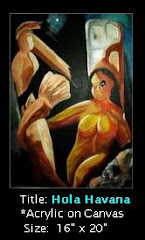Note: I’ve been embroiled in moving to new digs these past couple of weeks, and have been unable to devote as much time to my blogging as I would have liked. My apologies to those hoping for more frequent updates, next month should see the regular 4 or 5 posts.
Today, most people know of Fanny Brice though the highly fictionalized -but Academy Award winning performances - of Barbra Streisand in Funny Girl and Funny Lady. A pity, since Brice was a major star of her era, with performances worth remembering.
Brice was the stage name of Fania Borach, who was born in New York City in 1891 to Hungarian immigrants. At the age of 17, Brice dropped out of school to work in a burlesque revue, and within a couple of years was headlining in the Ziegfeld Follies.
Brice in 1910 (age 19)
The Ziegfeld Follies were lavish musical comedy revues that featured many of the big name stars of the day (including W.C. Fields, Ed Wynn, Will Rogers, Eddie Cantor, Eve Arden, Buddy Ebsen, Ray Bolger, Bob Hope, Milton Berle, and Sophie Tucker) along with the famous Ziegfeld Girls (which included such future stars as Marion Davies, Paulette Goddard, Joan Blondell, and Barbara Stanwyck)
For more than 20 years Brice was often one of the stars of the Follies, although she worked other venues as well. She was a successful recording star (most famous for Second Hand Rose, and My Man), and was a staple on radio from the mid-1930s until her death in 1951.
Along the way she appeared (often as herself) in a handful of movies, including Ziegfeld Follies of 1946 and the winner of the best picture of 1936, The Great Ziegfeld.
Brice died in 1951, and appeared only once on the fledging entertainment medium called television. Had she lived longer, and done more TV, perhaps she’d be better remembered today.
Her best known character was `Baby Snooks’, and it would pretty much define the last 15 years of her performing life. According to Brice, she developed the character as early as 1912 in Vaudeville, and performed in `baby clothes’ on Broadway in the Follies.
The story (or at least the legend) goes that in 1936, while scheduled to appear on the Ziegfeld Follies of the Air radio show, Brice forgot her dentures and couldn’t talk without a major lisp. Under the gun, the writers quickly adapted a public domain sketch about a boy and his father to fit Brice’s Snookums character, and she went on in character.
The piece - about a mischievous little girl and her exasperated father – proved very popular, and soon Brice was performing new bits in the Snookums character on the the Good News Show in 1937, and later as a regular character on Maxwell House Coffee Time.
Brice would perform the character in costume (incongruously playing a little girl nearly 50 years her junior) even though she was only being seen by a small studio audience.
In 1944, Brice got her own weekly radio series, which was eventually called Baby Snooks and Daddy. Lancelot “Daddy” Higgins was memorably played by Henley Stafford. Other cast members included Lalive Brownell, Leone Ledoux, and Danny Thomas.
We’ll come back to Baby Snooks in a minute, but first some early recordings by Brice available from the Internet Archive.
Fanny Brice - My Man (1922) ver1 3.4 MB
Fanny Brice - My Man (1922) ver2 3.2 MB
Fanny Brice - Second Hand Rose 1921 1.5 MB
Fanny Brice - Cooking Breakfast For The One I Love
2.3 MBFanny Brice - I'd Rather Be Blue Over You 1928 - 2.2 MB
Okay, so she wasn’t a Streisand.
Her main claim to fame was comedy, after all, but these highly stylized early recordings are not dissimilar from what you might have heard from the likes of Billy Murray or Ada Jones in the early 1920s.
Which brings us to well over 100 Baby Snooks sketches (mostly from Good News & Maxwell House Coffee Time), including dozens of full Baby Snooks and Daddy shows from the 1940’s.
Since there are far too many to list, I’ll simply give you the link to listen to/or download these shows from.
While it is easy to dismiss Baby Snooks as a one-joke show (Baby Snooks drives Daddy to distraction with constant questions), Brice managed to turn in nuanced performances that allowed the Snooks character to be exasperating, without being malicious or `bratty’.
Certainly worth giving a listen to, if for no other reason than to actually hear the real Fanny Brice, not the Hollywoodized version from the Funny Girl/Lady Movies.








No comments:
Post a Comment